The British Colonial administrators imposed their law, justice and jurisprudence on the native people little realising the importance of the indigenous customary laws. Obsession with written records made them feel that the only nature system available was the `Dharma Sastra' which found an admirer in Warren Hastings. Even this traditional Indian law the Colonial scholars treated as inadequate, incomplete and contradictory. And hence the imposition of Anglo-Saxon jurisprudence on the native population. However, there are areas like the North-East India where the Colonialists did not impose their system and let tribal customary practices administered by the village council to continue. The scarcity of information regarding practices and sanctions of the tribal societies of North-East India has been keenly felt by academic and administrative circles for it shackled the developmental activities throwing up new problems like tribal rights on land and forest. The earlier attempt of ethnographers to study the customary laws were flawed by their traditional `evolutionist' approach or piecemeal approach to individual questions. The present study comprising of anthropological analysis of data from seven major tribes living in seven states of North-East India is a beginning in the attempt to understand the tribal customary laws adopting a holistic approach since the entire matrix of these tribal societies orbits around the oral traditions.
Tribal Customary Laws of North-East India
$39.60
$44.00
In stock
Free & Quick Delivery Worldwide
All orders amounting to US$ 50 or more qualify for Free Delivery Worldwide. For orders less than US$ 50, we offer Standard Delivery at $14 per book.
ABOUT THE AUTHOR S H M Rizvi
Dr. Syed Hasan Mujtaba Rizvi (Ph. D., University of Delhi) is a research anthropologist and has carried out empirical studies in the field of bio-cultural anthropology among the tribes, and Muslims of northern, western, north-western and north-eastern India. He, along with Dr. Shibani Roy, has written eleven books based upon original research. One of the Professor Emeritus (Anthropology) while reviewing his books stated that ".this indicates his understanding of the subject of anthropology in totality and in modern anthropological world, works of such nature are always encouraged."
ABOUT THE AUTHOR Shibani Roy
Shibani Roy was born and brought up at Delhi. Her schooling had been at the Lady Irwin School and Post-School studies from Miranda House. She received her B.Sc. (Hons.) Degree in Anthropology in 1967 and Master Degree from the same Discipline specializing in SocialAnthropology. After a year of research work in the field of "Consanguinity among Muslims of North India", she joined department of Anthropology as a Ph.D. student in 1970 and was awarded the Ph.D. Degree in 1976. She was a part-time lecturer in Lady Irwin college, New Delhi, teaching post graduate classes during 1972-73. She was the recipient of senior research fellowship of C.S.I.R. for her project entitled "Changes in value Orientation of contemporary Muslims" carried out amongst the Bohras of Bombay. Her articles in Hindustan Times and Youth Times equally provoked the social scientists and laymen and made them have a new perspective towards this minority community. From 1976 to 1978 she had been actively engaged in a project on female fertility financed by World Health Organization. The entire work had been centred around Rajput Women of Rajasthan. At present she is holding the post of Assistant Anthropologist (Cultural) with the Anthropological Survey of India, Government of India. She has participated in national and international seminars and has a few publication to her credit in the field of Muslim women. Dr. Shibani roy has further stepped into the secluded privacy of the Muslims by marrying a Muslim fellow anthropologist and has a daughter.
reviews
0 in total
Review by Anonymous
Be the first to review “Tribal Customary Laws of North-East India” Cancel reply
You must be logged in to post a review.
Bibliographic information
Title
Tribal Customary Laws of North-East India
Author
Edition
1st ed.
Publisher
ISBN
8170185866, 9788170185864
Length
vi+204p., Glossary; Bibliography; Index; 23cm.
Subjects
more by S H M Rizvi see more
more by Shibani Roy see more
Naga Tribes of North East India
$23.40
$26.00

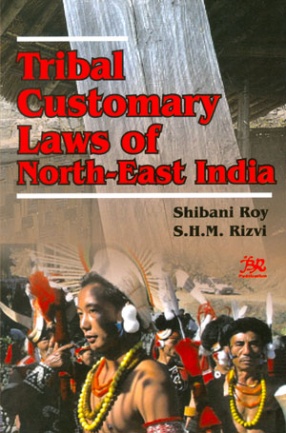
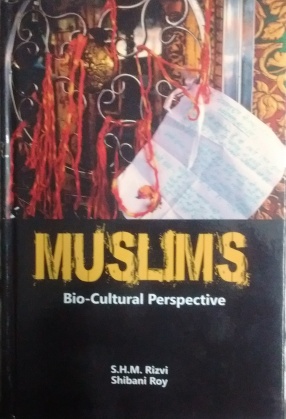
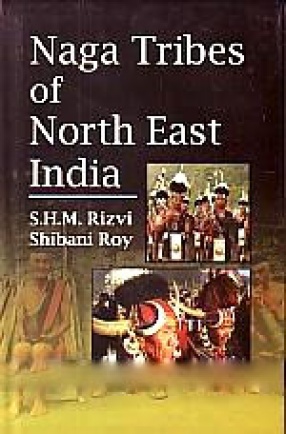
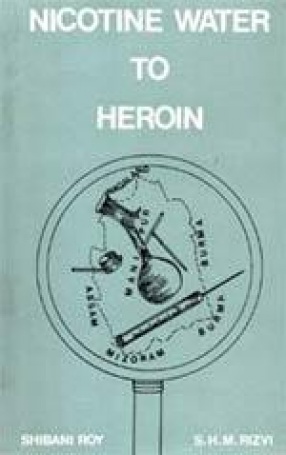

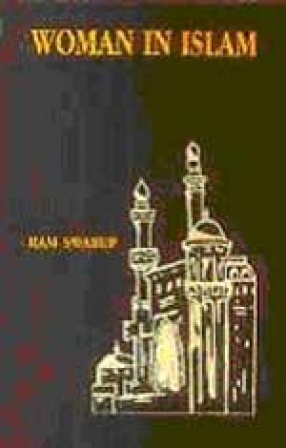

There are no reviews yet.